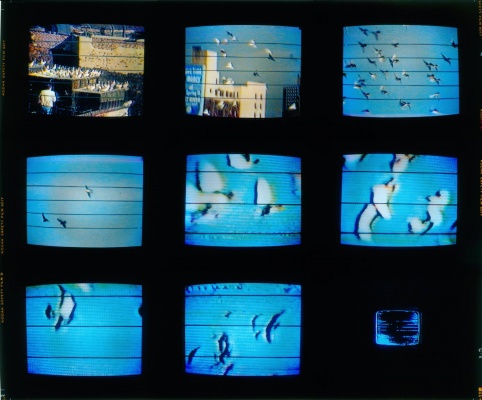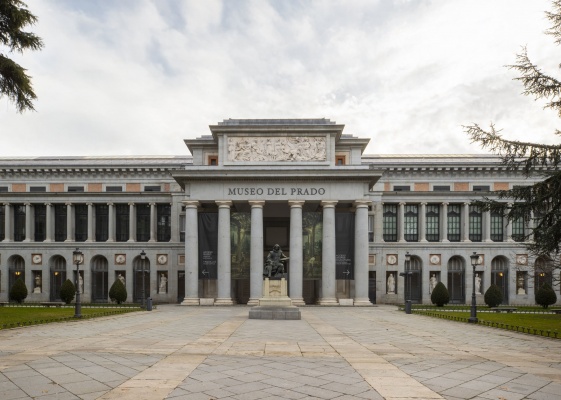Descripción de la Exposición
Entitled Starting from the Desert. Ecologies on the Edge, the Second Yinchuan Biennale will open on 9 June, 2018, at the MOCA Yinchuan. With the Chief Curator Marco Scotini, the Yinchuan Biennale is pleased to announce the curatorial team consisting of Andris Brinkmanis, Paolo Caffoni, Zasha Colah, and Lu Xinghua.
Conceived with the aim of measuring itself against a determinate geo-historic context, and with the purpose of presenting itself as a sort of minor language within the biennale system, Starting from the Desert. Ecologies on the Edge reacts to urgencies in the contemporary world (not only in China) through archeological methods. The North-West of China, notoriously considered a remote area, is also one which, since the time of the historic Silk Road, has been defined as an area of great flows, hybridizations and exchange between people, languages, technologies, animals, spices and goods.
With respect to the possible reduction of the Euro-Asian continent to pure geo-economics, which current large-scale, transformative projects could imply, the Second Yinchuan Biennale seeks to read the relationalities and modalities of ‘being together’ in the cross road of multiple components, as essential for a new ecology aiming to emancipate forms of life. In search for eco-logics as a new paradigm of transversal thought, the Second Yinchuan Biennale attempts to, not reduce these elements to subject matter, but to utilize them in order to question the limits of the exhibition format, and thus to eventually produce a new eco-model of exhibiting.
The Biennale’s framework is articulated over four, interdependent (and often overlapping) thematic areas that, without seeking to limit or circumscribe, attempts to visualize their material and immaterial aspects. In the same way, these areas try to question the contradictions of the dualistic systems that have accompanied the rise of modernity and Capital, positioning them as limits to the realization of an ecological world.
Nomadic Space and Rural Space is concerned with the interaction of the physical environment with forms of life. It proposes less the different natures of the two spatial types, than their reciprocal meeting points, their intersections, and the passage from the one to the other. If it is true that the desert of sand is not an area designed exclusively by geology and the climate, it is equally true that rural spaces are not created solely by humans but also by a series of natural constraints and opportunities. The social, economic, cultural and political implications linked to the figures of the nomad and the peasant are seen as the semiotics of subjectification.
Labor-in-Nature and Nature-in-Labor, a coinage taken from Jason W. Moore, focuses on forces of production (commodification) and on the relations of production (appropriation, exploitation, accumulation) linked to modern ideas of nature. It is only by overcoming the hegemonic vision of nature as separate from humankind (that has been the lifeblood of capitalism) that we can acknowledge how, production forces–historically determined–have encompassed human- (women, slaves, children) and extra-human- (animals, forests, waterways, the land) nature.
The Voice and The Book intervenes at the level of mental ecology deconstructing the opposition between phonemes and graphemes, orality and writing, and the prejudices of a logocentrism, which in the West has defined what takes place in and beyond history. Considering voice without language a language without a voice, directly involves the questions of the production and reproduction of knowledge and, as a consequence, the dimensions of politics.
Minorities and Multiplicity discusses associations and the associative forms of living beings: from the micro-social to the institutional scale. The concept of community on which modernity is founded (and through which extra-human nature is also considered) is based on the idea of a common and shared world in which the condition of equality is indivisible from that of identity and belonging. For this reason, the relation between minorities and a majority does nothing but infinitely reproduce the dialectics between integration and exclusion. The idea of multiplicity, at the base of social ecology, does not permit, on the contrary, any concept of a majority.
With new commissions alongside ancient artistic relics from public museums and private collections, the Second Yinchuan Biennale has selected the participating artists from over thirty countries & regions, paying particular attention to the western borders of China (from Mongolia to Central and South East Asia) in a way that is consistent with the exhibition’s geo-political and its investigative methods. Starting from the Desert. Ecologies on the Edge announces its final list of artists. The works from 80 groups of (92 individuals) artists will be located within the Museum of Contemporary Art Yinchuan (MOCA YINCHUAN), the International Artists Village, and the Hui Nongqu Eco-Park. A reader, to be published by Mousse Agency & Publishing, serves as a theoretical orientation to the exhibition.

Exposición. 10 sep de 2016 - 11 sep de 2016 / Museum of Contemporary Art Yinchuan / Yinchuan, Ningxia, China

Exposición. 08 may de 2025 - 14 sep de 2025 / MNAC - Museu Nacional d'Art de Catalunya / Barcelona, España

Formación. 30 oct de 2025 - 11 jun de 2026 / Museo Nacional del Prado / Madrid, España